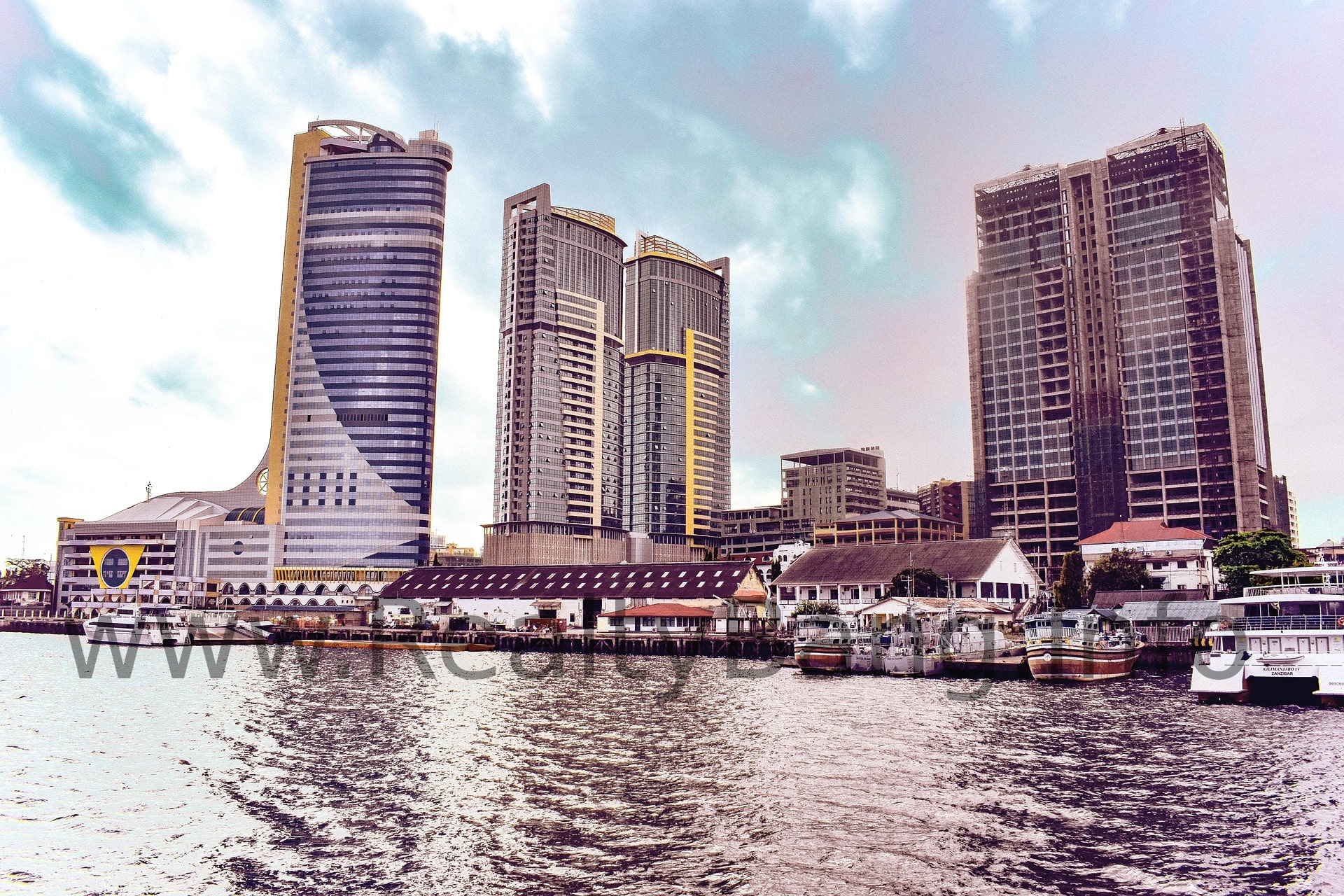Housing in Tanzania is dominated by individual home-builders, accounting for more than 70% of the total supply. The rest is met through local governments such as the National Housing Corporation (NHC), Tanzania Building Agency (TBA), Watumishi Housing Company (WHC), and pension funds such as the National Social Security Fund (NSSF).
Tanzania’s Housing Demand (Affordable Housing) estimates that there are 200,000 housing units annually, with a housing deficit of 3,000,000 housing units. In 2018, Tanzania had 12.5 million households, of which 8.3 million were rural and 4.2 million were urban.
Dar es Salaam manages the urban housing market in Tanzania, where 51% of households rent. The most expensive residential properties in the city are located in Oyster Bay and the Srisani Peninsula.
Prime residential rents in Dar es Salaam have fallen by 72% over the past five years, a drop of USD 5,000 per month in 2015 and USD 2,900 for a three-bedroom apartment in 2019. The decline is due to the slow supply of housing units.
Housing prices in Dar es Salaam range between USD 300,000 to USD 500,000 for a 3-bedroom home in prime areas and start at USD 50,000 for other areas.
The Government of Todania is considered an emerging market for residential properties following the government’s decision to relocate all ministries and institutions from Dodoma Dar es Salaam to Dodoma.
Demand has also increased due to the growing ex-pat community. Major residential rents in Dodoma are between USD 2,500 and USD 3,000 per month on average for a three-bedroom apartment.
For low-and middle-income homes, NHC started the Iyumbu sateLlite center in 2016, which houses 300 three-bedroom stand-alone homes and other facilities. The price is between USD 25,109 and USD 36,551.
Tanzania Office Market
Traditionally, all management offices have been headquartered there and all strategic missions and private companies have a presence in the city. However, office rents have diminished over the past five years, from USD 25 per sqm per month in 2015 to USD 12 in 2019 due to the new location in the market.
Additionally, the government determined to move from Baroda to Dar es Salaam. Due to that move, prices are expected to rise in the Dodoma real estate market.
Tanzania Retail Market
Tanzania’s formal retail activity is concentrated in the country’s major economic center, Dar es Salaam. The retail stock of Dar es Salaam is 153,000 sqm. The main premium malls are Mlimani City Mall in Mwenge, Abha Mall in Upanga and Mkuki Mall in Kisutu.
The average rent is USD 20 per square meter per month, while the selling price is USD 2,200 per square meter. Dar es Salaam finds investors with growth opportunities in the formal retail sector.
Tanzania Industrial Market
The increase in investment and business activities in Dar es Salaam has increased the demand for storage space along Neri Road, mainly in the city’s major industrial area. Dar es Salaam is an important transit trade port, handling 95% of Tanzania’s trade and connecting land-related countries (Burundi, Rwanda, Zambia, Malawi, and Eastern DRC) with its foreign trade partners.

However, there was a 50% drop in main industrial rents in the last four years, with USD 5 per square meter per month in 2016 and an increase of 3.5% in 2019.
Demand is expected to increase due to the recent discovery of natural gas offshore in Tanzania‘s industrial area and several planned infrastructure projects.
Property Purchase Process in Tanzania
The state owns all the land in Tanzania. Therefore, no private ownership is allowed for both citizens and non-citizens.
Nevertheless, the government grants rights to the acquisition and derivative rights to the land. A right of ownership is legitimate for 5-99 years, renewable. To obtain the right of occupancy to a foreign person, he must first be given a Certificate of Incentive by the Tanzania Investment Center (TIC).
There is also an option to obtain sub-leases on the land, which has been provided to the private sector through authorization.
Foreigners can only occupy the land for investment. There are several ways to allow possession of the land: through obtaining derivative rights from TIC, application to the commissioner for the land, purchase of sub-leases, a license from the government, and holders of occupancy rights.
Occupancy rights are transferable, subject to the condition that they must be transferred to a foreigner with TIC’s permission.
If the foreign investor opposes buying from the holder of the right of occupancy, the process requires the services of an attorney. The lawyer drafts a sales agreement and the seller provides the necessary documents that confirms that he or she has a right over the property in the case or is clear of any encroachment.
The notary contract is taken to the Land Office, where the buyer pays the taxes and fees required to enter his name in the Land Registry. The lawyer also prepares a transfer deed, which is submitted to the municipal office along with the sale agreement. A certificate is sent to the buyer of the business.
Transaction cost table
The cost of a round tour transaction covers all the costs of buying and reselling the property – attorneys’ fees, notary fees, registration fees, taxes, agents’ fees, and more.
Notary fee
Notary fees are about 3% of the value of the property. The notary fee is negotiable, but regulated and cannot exceed 10% of the value of the property.
Stamp duty
Stamp duty is levied at 1% of the property value.
Registration fee
The registration fee is about 0.25% of the value of the property.
Assessment fee
The estimated value of the property is about 0.10%. The official valuation fee formula is: (property value – 200,000) * (1.25 / 1,000) + 550 + assessed value of 0.01% of the property value.




